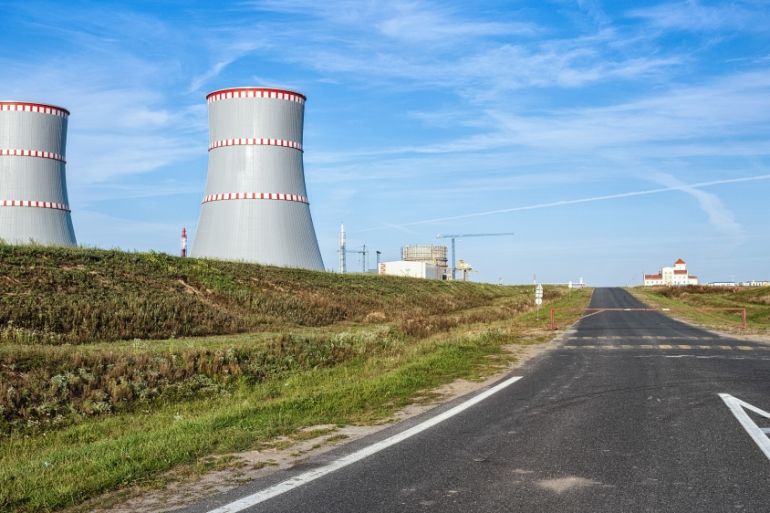Belarus begins fuelling its first nuclear power plant
The Russian-built Astravets nuclear plant is expected to start powering Belarus by the end of this year.

Belarus has begun loading fuel into the first of two reactors at its new Russian-built Astravets nuclear power plant, saying it expects to begin using the plant by the end of this year.
Built by the Russian state nuclear agency Rosatom and financed by Moscow with a $10bn loan, the project is opposed by neighbouring Lithuania, whose capital Vilnius is just 50 km (31 miles) away.
Keep reading
list of 4 itemsBombs and viruses: The shadowy history of Israel’s attacks on Iranian soil
Russia says Ukraine attack hits Zaporizhzhia nuclear power plant
Nuclear energy cannot lead the global energy transition
Lithuanian President Gitanas Nauseda on Friday called it a “threat to our state’s national security, public health and environment”.
Lithuania’s Energy Minister Zygimantas Vaiciunas said he had warned the International Atomic Energy Agency (IAEA) over what he called Minsk’s haste to launch the project.
Safety fears
Vilnius has banned all electricity imports from the plant, citing concerns about safety and national security, and along with Estonia and Latvia is considering slapping a fee on power imports from Russia, as well.
Lithuania, Latvia and Estonia are moving towards a full decoupling from their Soviet-era common power system by 2025.
Belarus denies that the plant poses a risk and has insisted it meets all safety requirements.
Russia’s Rosatom says the plant “fully meets post-Fukushima demands”, referring to Japan’s 2011 nuclear accident, as well as “international norms and IAEA recommendations”.
The Belarusian energy ministry said it plans to add the first 1.2 gigawatt VVER 1200 reactor to the country’s power system in the fourth quarter of this year.
Construction of the second reactor is scheduled for completion in 2022 and will double the plant’s capacity to 2.4 gigawatts.
The ministry said the plant will meet about one-third of Belarus’s demand for electricity, replacing 4.5 billion cubic metres of natural gas per year and reducing greenhouse gas emissions by more than seven million tonnes annually.
Belarus has experienced severe radiation in 1986 from neighbouring Ukraine’s Chernobyl nuclear plant disaster. Chernobyl’s nuclear fallout contaminated about a quarter of Belarus’s territory.